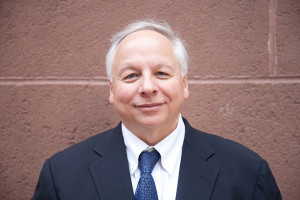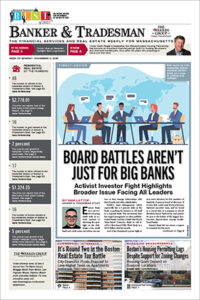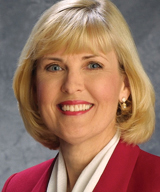Climate resilience and preparedness emerged as a policy priority for the city of Boston after observing the impacts of Hurricane Sandy on New York, New Jersey and Connecticut. While Boston avoided significant damage from Sandy, the city and New England are expected to see increased precipitation, rising temperatures and flooding events as a result of climate change. Last winter was an illustration of increased precipitation’s crippling effect on the city. Thus, from A Better City’s perspective, serious conversations about the future of Boston and our region’s economy must include discussion and action around climate preparedness and resiliency.
This year Mayor Martin Walsh and the city of Boston are taking action through the “Climate Ready Boston Initiative.” A Better City, a membership organization of 130 business and institutions in metropolitan Boston, is supporting this effort through companion events, such as the October commercial real estate sector summit on climate resilience, and a series of events and written pieces targeted at engaging the business community during the Climate Ready Boston process.
Specifically, Climate Ready Boston has four distinct phases which will be completed over the coming six to eight months. The first phase, which is presently concluding, arrived at a climate projection consensus for Boston by aggregating existing work from state and local agencies on future climate impacts. The second phase will create a comprehensive vulnerability assessment for Boston leveraging the climate projection consensus and key data inputs from infrastructure providers to better understand climate risks and stressors for the city. The third and fourth phases will identify critical resilience zones based on the vulnerability assessment, and create targeted action plans for communities who appear to be most at-risk from future climate impacts.
Increasing the resiliency of our buildings, businesses and communities will be a crucial transformative step for the city of Boston. During the construction of the Central Artery Tunnel, the business community provided a united voice into this evolutionary project for Boston. Similarly, it is crucial that the perspective of the business community be integrated into the city’s resiliency planning efforts. A Better City will be hosting a series of focus groups, engagements and events targeted for business community constituents. Prior to Climate Ready Boston, A Better City produced a Resiliency Toolkit, showcasing available technologies for building owners to adapt their facilities to climate change impacts, and will continue cutting-edge research on the area of buildings, resilience and the built environment.
We encourage the business community to join us in participating in the Climate Ready Boston effort, which will lay the foundation for preparing our community for climate impacts in the years to come.
Rick Dimino is president and CEO of A Better City.






